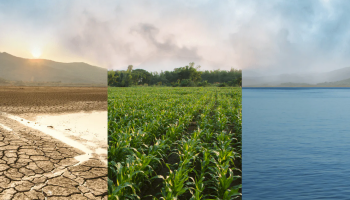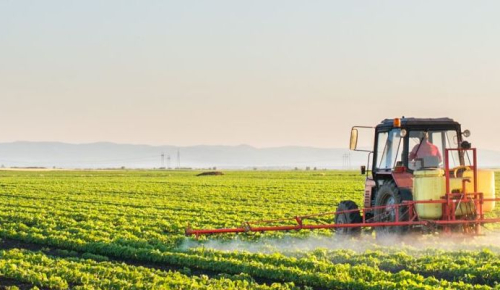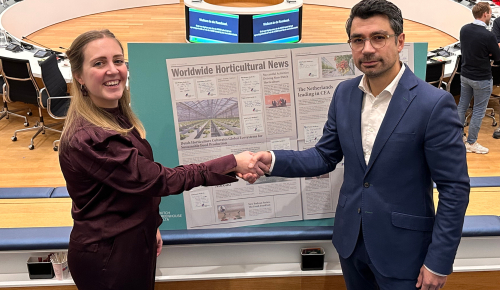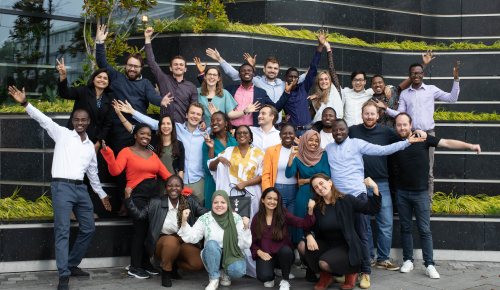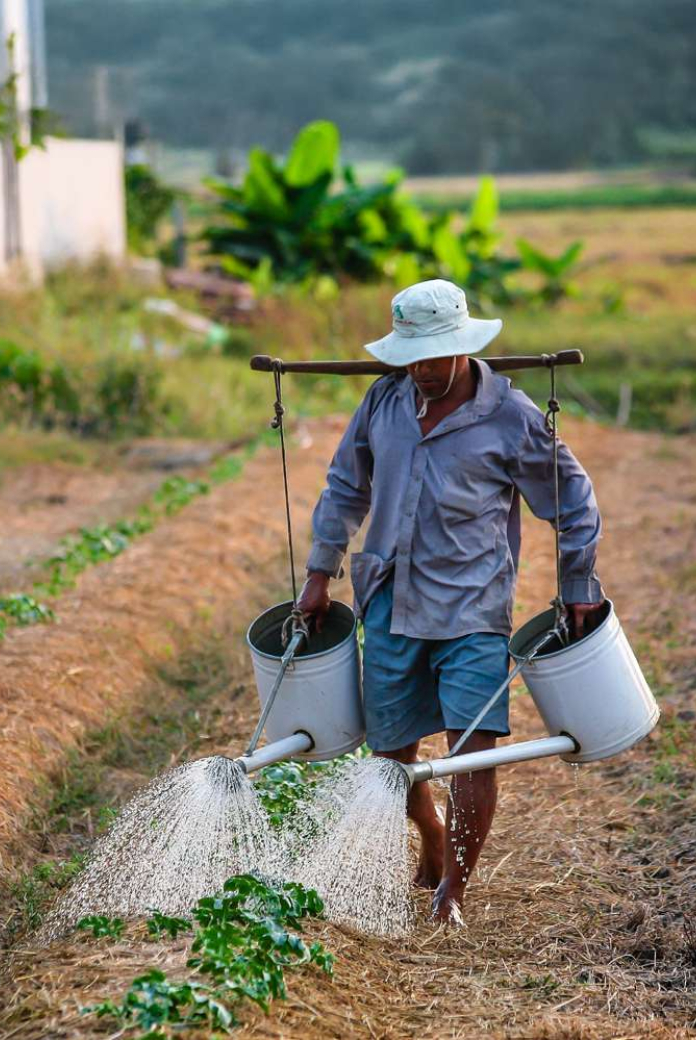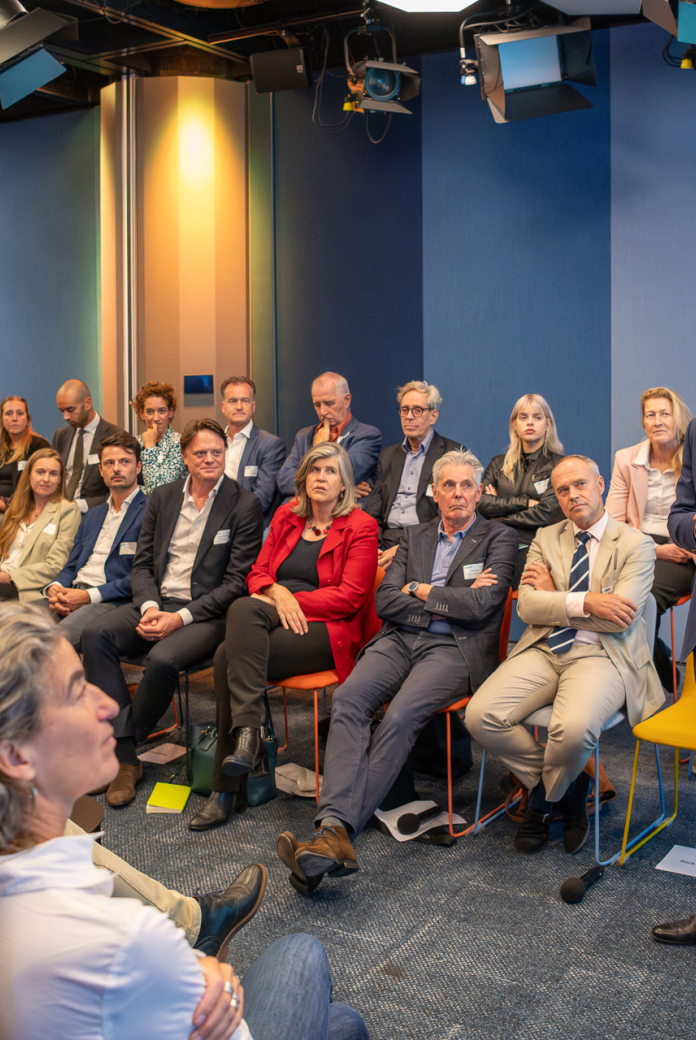News
3 April 2025Resilient Roots: Leveraging indigenous practices for salinity adaptation in Southern Bangladesh
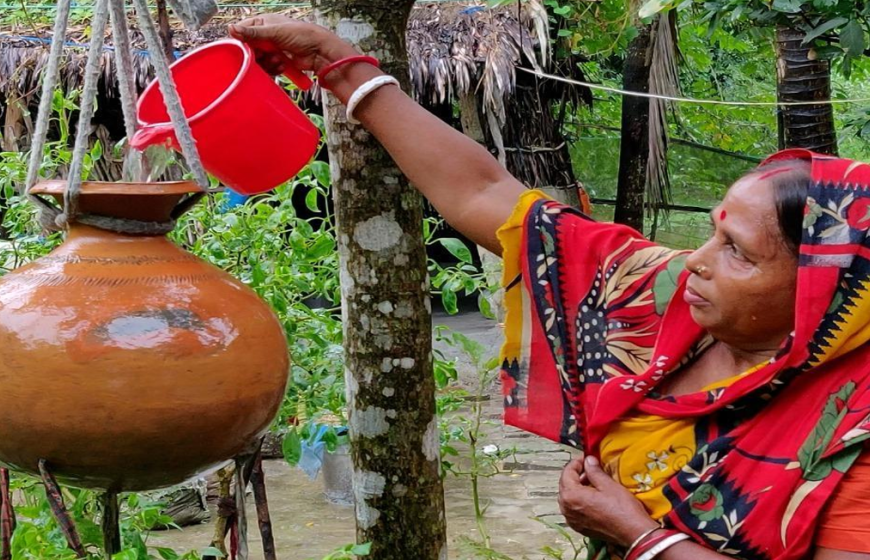

As part of the Saline Water & Food Systems Partnership Seed Money Facility, three projects were carried out in 2024 in Bangladesh, Mozambique, and Senegal. The report of the Resilient Roots project in Bangladesh, carried out by the Center for People and Environ, Farmers Voices, and the Free University of Amsterdam (VU) is available here. Below is the summary and a short film about the project.
Bangladesh is one of the most climate-vulnerable countries in the world, facing frequent extreme events such as floods, droughts, and increasing salinity. With agriculture as the backbone of rural livelihoods, communities have developed rich experience in adapting to these environmental challenges. Over generations, this has shaped a wealth of indigenous knowledge, from expert knowledge shared through verse to practical tools and techniques.
This study aimed to identify and document indigenous agricultural practices, local crop varieties, and traditional tools with potential for scaling up. The focus was on promoting climate-smart agriculture in salinity-affected regions of Shyamnagar (Khulna), Hatia (Noakhali), and Banaripara (Barishal).
Methodology and sources
To achieve the study objectives, a multidisciplinary approach was used for data collection in Shyamnagar, Banaripara, and Hatia. Primary data was gathered through 300 farmer surveys (100 per location), 12 focus group discussions (FGDs), and 32 case stories.
Key policy documents and literature were also reviewed, including the Bangladesh Climate Change Strategy and Action Plan (BCCSAP), the eighth Five-Year Plan, and various studies on indigenous knowledge in Bangladesh from ADB, UNESCO, IFAD, and the Bangla Academy. Published and unpublished research papers from the Departments of Anthropology and Environmental Science of several universities were also consulted.
Soil salinity samples were collected from homesteads and agricultural lands in the study areas. These were analysed at the CPE Soil, Water, and Environment Lab.
Watch the short documentary video on the Resilient Roots project.
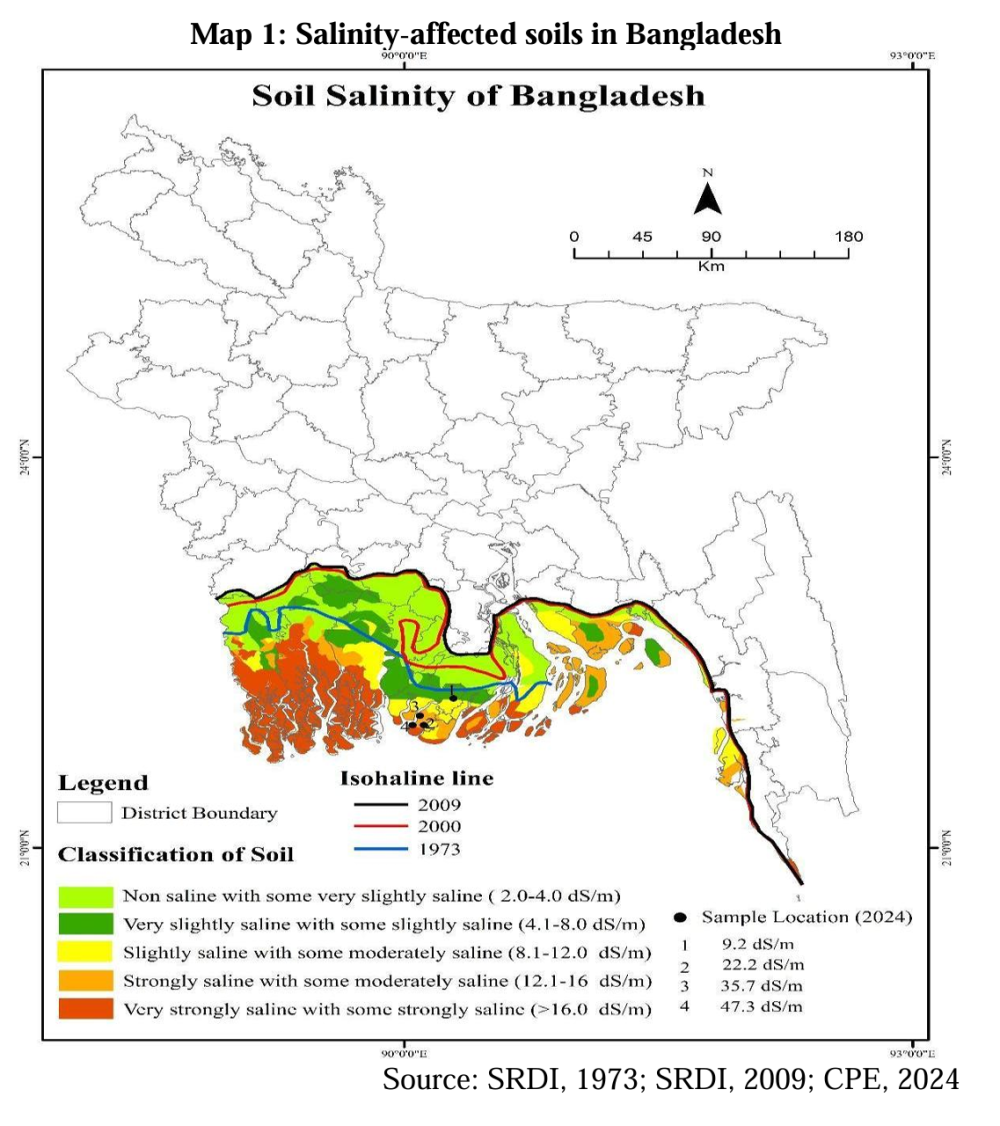
Salinity impact and crop losses
Salinity in surface water, groundwater, and soil has become a major challenge along Bangladesh's southern coast. In 1973, salinity-affected land totalled 1,205,931 hectares, increasing to 2,502,856 hectares by 2009 – an increase of over 1.29 million hectares in 36 years. By 2024, several areas previously categorised as low or moderately affected now face high salinity levels.
Salinity, along with rising pressure from pests and disease, has severely impacted crop production. The study shows that average homestead crop losses due to salinity are 19.2 kg per household in the Rabi season, dropping to 8.34 kg in Kharif I but rising sharply to 30.65 kg in Kharif II.
Field crop losses averaged 2.71 MT/ha in Rabi, 1.70 MT/ha in Kharif I, and 3.32 MT/ha in Kharif II.
Three salt-tolerant vegetables with high potential for scaling up in affected areas were identified:
- Gima (Glinus oppositifolius) – tolerant up to 6.38-7.5 dS/m
- Kolui (Pisum sativum) – tolerant up to 7-9 dS/m
- Torul (Luffa aegyptiaca) – tolerant up to 2.2-3 dS/m
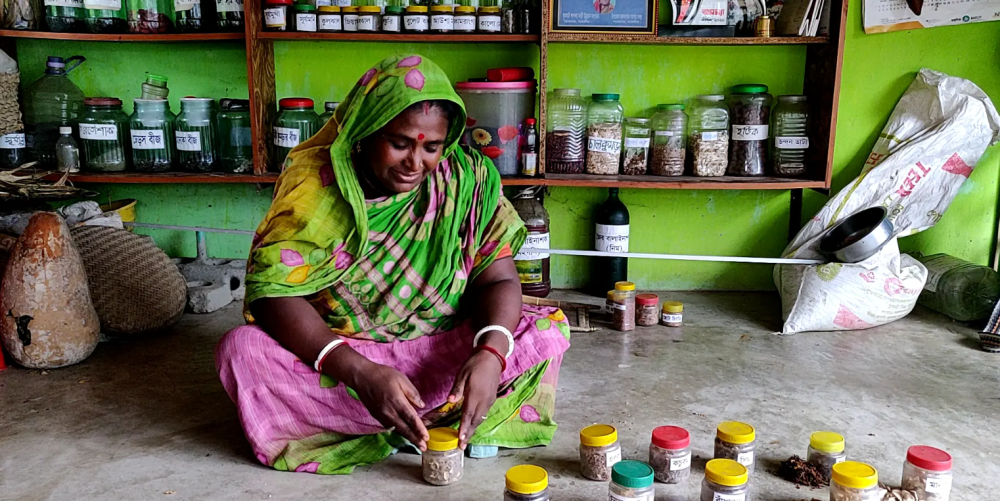
Indigenous farming technologies
Farmers along Bangladesh’s coastal belt have long used indigenous farming methods to cope with climate extremes such as salinity, tidal floods, waterlogging, and inundation.
The study identified several traditional techniques.
- Ghor Krishi – an innovative method that turns waterlogged land into productive fields. It is best suited for medium-high to medium-low land with slow drainage.
- Dhap Krishi – a floating farming system designed for wetlands, submerged, saline, and flood-prone areas, offering a resilient solution against climate impacts.
- Dyke/Ail Farming – a common adaptation technique in salinity-affected, flood-prone, and waterlogged areas, combining crop cultivation on dykes with aquaculture.
- Macha Krishi – practiced in waterlogged and saline areas, this method uses raised platforms to secure crops above water levels while managing salinity challenges.
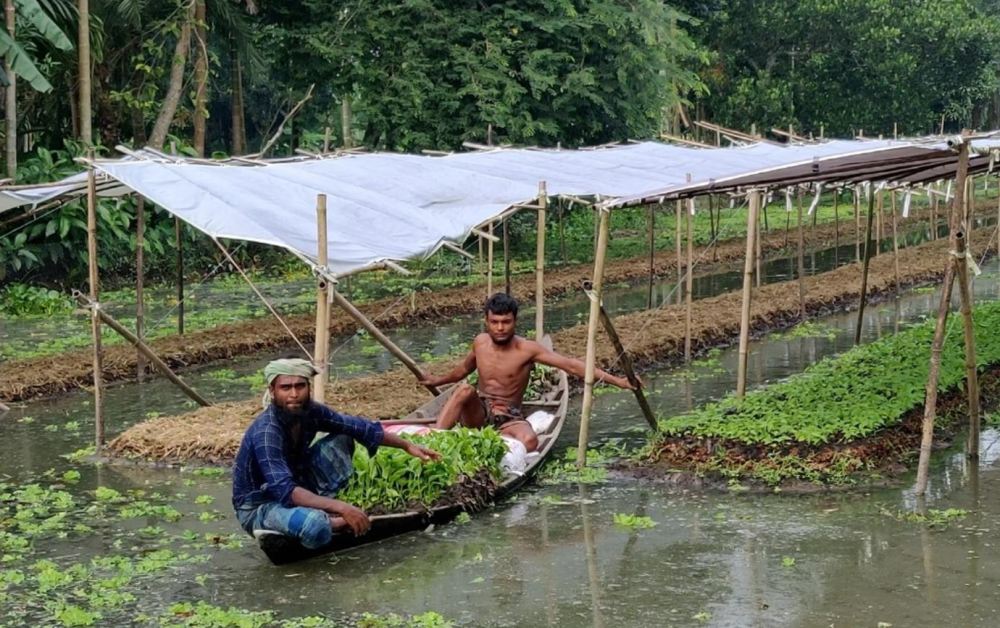
Indigenous water management practices
Coastal farmers in Bangladesh have traditionally developed various water and irrigation management techniques to cope with climate-induced challenges such as salinity, tidal inundation, waterlogging, and flooding.
The study identified several indigenous methods.
- Kol – a simple but effective water management system that prevents saltwater intrusion in crop areas.
- Kongkona – widely used in salinity-affected zones, this system helps tackle water scarcity, especially during dry periods.
- Jolpotti – an earthen-holed irrigation method designed for vegetable fields, ensuring efficient water use.
- Kuni – a small water body created in or around paddy fields that helps with water storage and climate adaptation in saline areas.
- Kaite Bera – a protective barrier around farmland that shields crops from saltwater storm surges and livestock damage, reducing losses during extreme weather events.
Promoting kitchen gardens also proved effective, offering resilience against drought and salinity while supporting household nutrition.
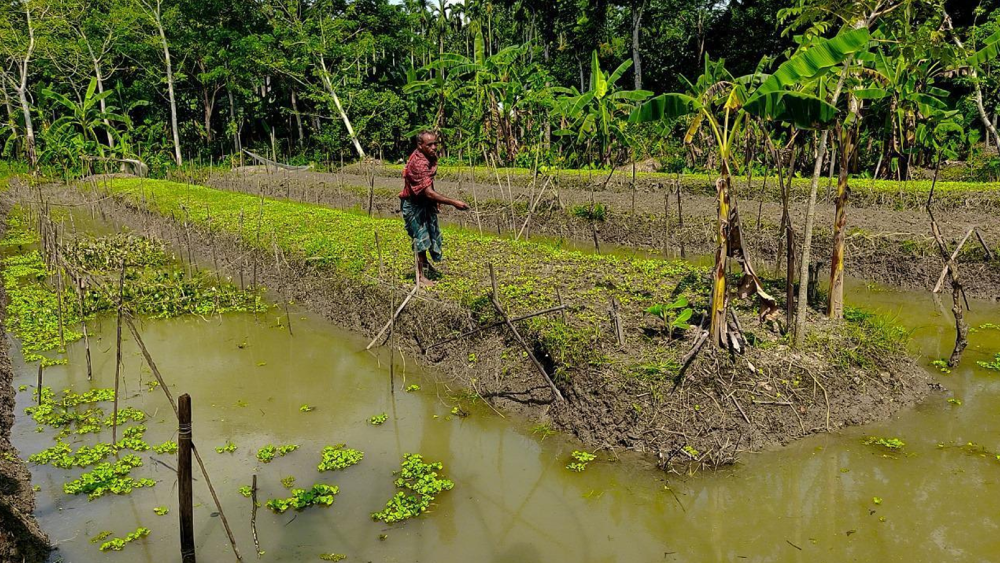
Indigenous seed and food preservation
Farmers in Bangladesh’s coastal belt have traditionally used various seed and food preservation techniques to cope with salinity, flooding, waterlogging, and tidal surges.
Key methods include the following.
- Gobre Beej – using cow dung to protect seeds from pests.
- Barna – bamboo baskets for storing food items.
- Kulhar – earthenware pots for food storage.
- Kuthi Gola – large earthen pots used to store paddy and rice, protecting them during the monsoon.
While these indigenous practices are valuable for climate adaptation, more research is needed to refine and scale them. Integrating modern technologies with traditional knowledge is essential. However, there are no policies to conserve and protect indigenous knowledge in Bangladesh. Urgent policy and institutional support are needed to conserve these practices.
Saline Water & Food Systems
Saline Water & Food Systems (SW&FS) is a multi-stakeholder partnership that stimulates collaboration between the Dutch water and agrifood sectors to address the challenge of salinity in low and middle-income countries (LMICs). The partnership consists of knowledge institutes, diverse members of the business community such as innovative SMEs, and experts operating on the ground. It is supported by the Netherlands Ministry of Agriculture, Nature, and Food Quality.
